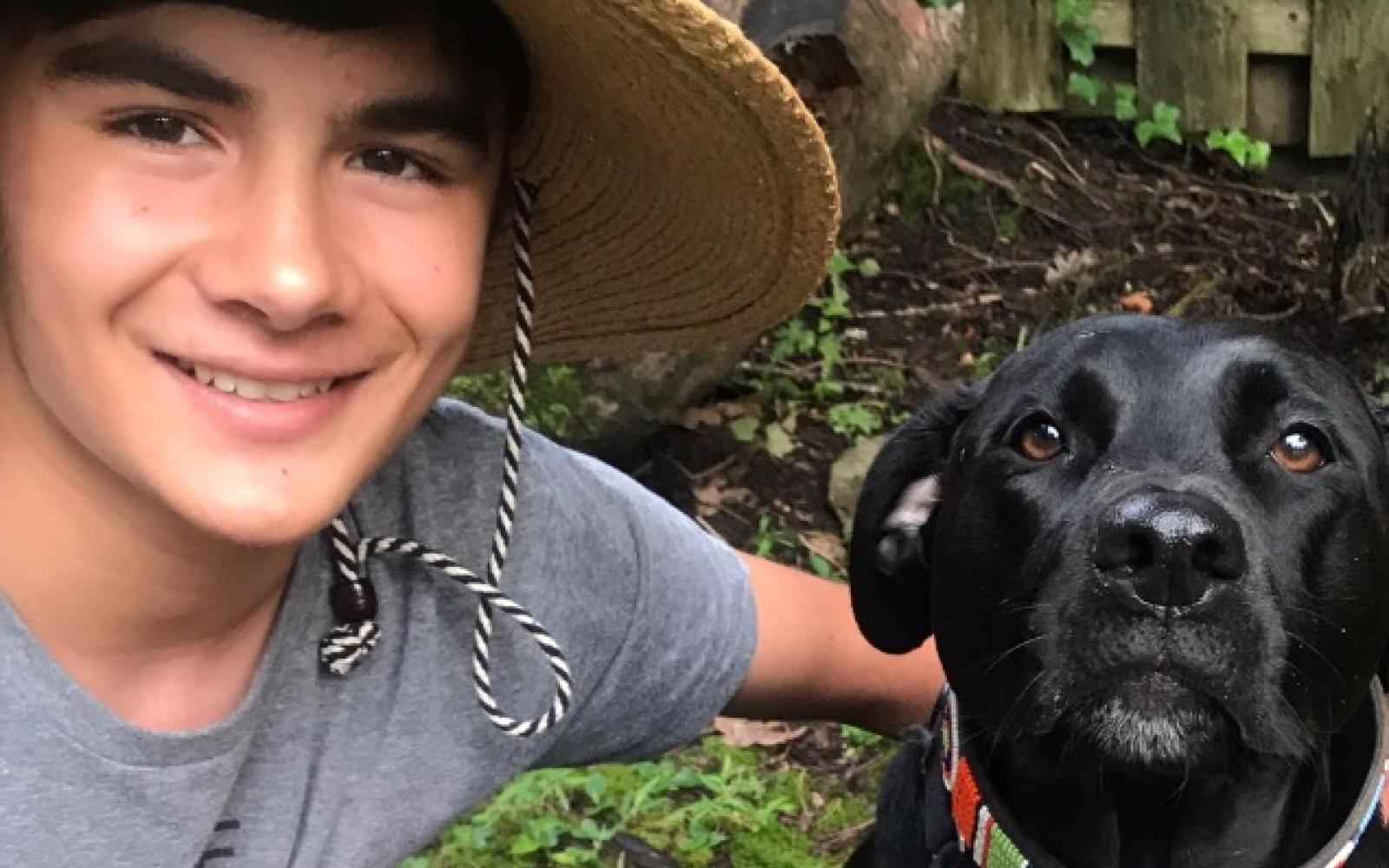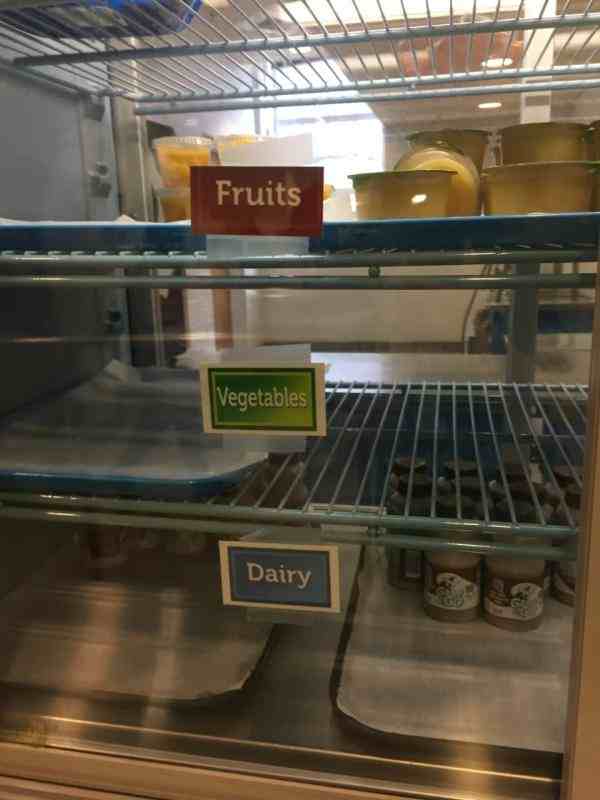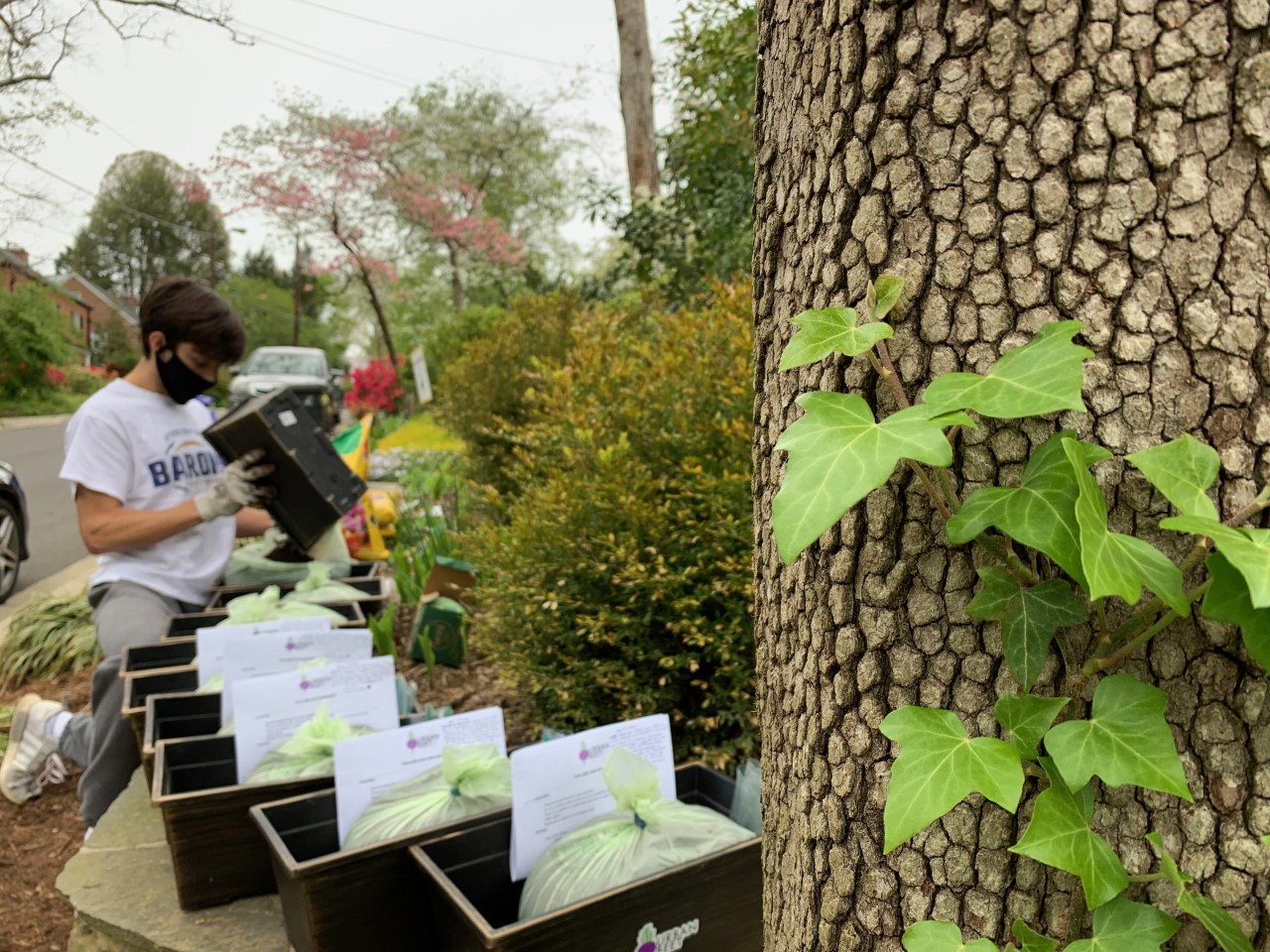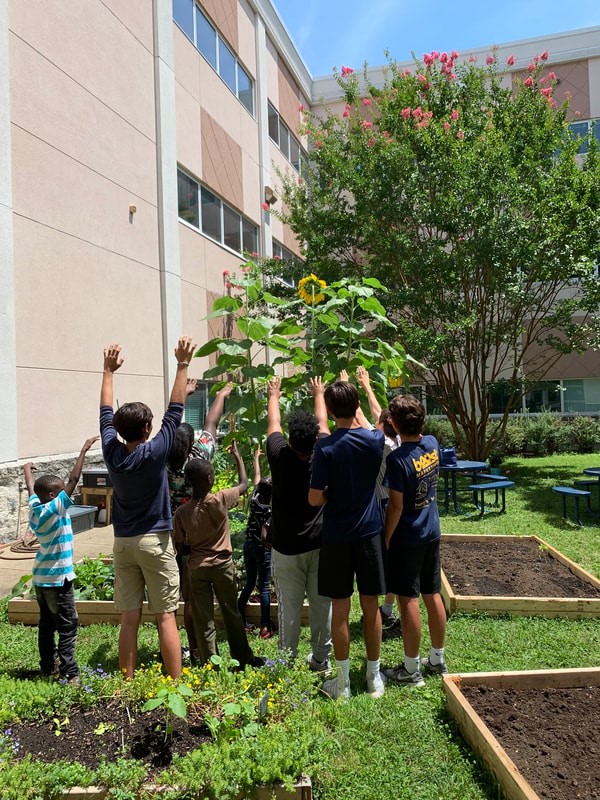Budding changemakers: Chander's journey to nourishing people and the planet

Chander’s journey to changemaking would not have been possible without the collective efforts, passion, and talent of his friends that saw the potential of planting seeds for change. With a shared vision, Chander and his team mobilized their friends and community to change their school culture to value and nurture changemakers through urban farming. As Chander passes on his venture to another generation of young leaders at his school, he is embarking on his own journey to live a life of changemaking.
Chander Payne really likes soil. According to Wikipedia, soil has four functions: 1. As a medium for plant growth, 2. As a means of water storage, supply and purification, 3. As a modifier of Earth’s atmosphere, and 4. As a habitat for organisms.
Unsurprisingly, these functions for soil closely align with the goals of the social venture Chander started in 2018: Urban BEET. The group grows plants, cleans their community, modifies the atmosphere around food security, and creates homes—metaphorical and literal—for people and organisms in their farms. That’s the quick and dirty (get it?).
But there is much more to Chander and his team of fellow young changemakers. Let’s go back to Urban BEET’s roots.

In his sophomore year of high school in Bethesda-Chevy Chase, Maryland, Chander walked into his cafeteria and saw an empty vegetable refrigerator. “That really struck me. I was thinking about how that effected my peers and their learning,” he explained. Chander knew how important fresh, healthy food could be. He also knew about the potential of urban farming—his grandmother, an Indian immigrant living in Memphis, Tennessee, had been growing food in her backyard garden for decades. So, Chander decided to get to work.
He certainly did not work alone—Urban BEET is not a solo act. Chander enlisted the help of some close friends to partner with a rooftop farm to bring 20 pounds of fresh produce to the school pantry every week for underserved students at his high school. “That’s how the program [Urban BEET] started—we were just addressing the food insecurity issue,” he explained.
The next summer Chander worked with Love and Carrots, an urban agriculture initiative in the D.C., Maryland, Virginia area. There he found a mentor in Head Garden Coach Manuel Rojas and learned about regenerative agriculture. The effect Manuel had on Chander and Urban BEET is profound.
“Manuel taught me the no-pesticides philosophy. He taught me to go further: to use cover crops and all sorts of things that make up ethical farming. [This is] what I want to give to others through building these gardens in schools.” With the combined goals of regenerative farming and addressing food insecurity Chander and Urban BEET found its mission.

Since its founding in 2018 the venture, now an incorporated LLC, has expanded outside of Chander’s school and into the broader Washington D.C. community. Their flagship school farm includes a solar powered vertical farm and they now run three affiliate farms. They collaborate with the Homeless Children’s Playtime Project to teach children and young people residing in the shelter the joys of farming. The team also manages a “Free Little Farms” program during the COVID-19 pandemic, distributing over 2,500 pounds of food since their founding while raising over $4,000 in donations. And, as Chander explains, they have inspired themselves and others to be changemakers in their communities.
One of Chander’s central roles as founder and executive director of Urban BEET is “to create other leaders and be kind to everyone on my team so they can feel comfortable in voicing their ideas.” The goal is an umbrella organization—Urban BEET—over a group of young intraprenuers working in regenerative urban farming. Chander relies on his team to bring ideas to the table and collaborate. For example, Kesh Khanna, the operations director, is the engineering mind of the group the Chander goes to when inspiration strikes. Another team member, Fin Zakas, “increases the breadth of how [Urban BEET] does agriculture” through vertical farming and other forward-thinking initiatives.
Urban BEET has grown so much since the day Chander saw an empty vegetable refrigerator in his school cafeteria. They are in the process of applying for 501(c)(3) status and are discovering new ways to expand their programming across the DC region.

Now, as Chander plans to attend William’s College, he is passing the leading role in Urban BEET to Safi Khanna, a lifetime friend and soil advocate. While this is a big transition for the team, Chander is confident in her passion for regenerative agriculture and the future of Urban BEET. “A lot of what we do is centered around healing. And that healing is not only for the people, like the youth we bring to our farms—we want to heal the soil…That is central to our philosophy.” If they maintain their roots (pun intended) of healing communities and soil, Chander knows Urban BEET will head in the right direction.
Chander has equal passions for urban farming and inspiring young people. He heard one of his favorite quotes from Terrell Galloway at the T-Mobile Changemaker Lab. It goes: “I am great, you are great, we are great.” Chander is quick to highlight the “we” aspect. As a collective, especially in Generation Z, Chander recognizes that “we,” together, can together heal ourselves and our soil.
This story was written by Maddie Finn, Executive Office Intern